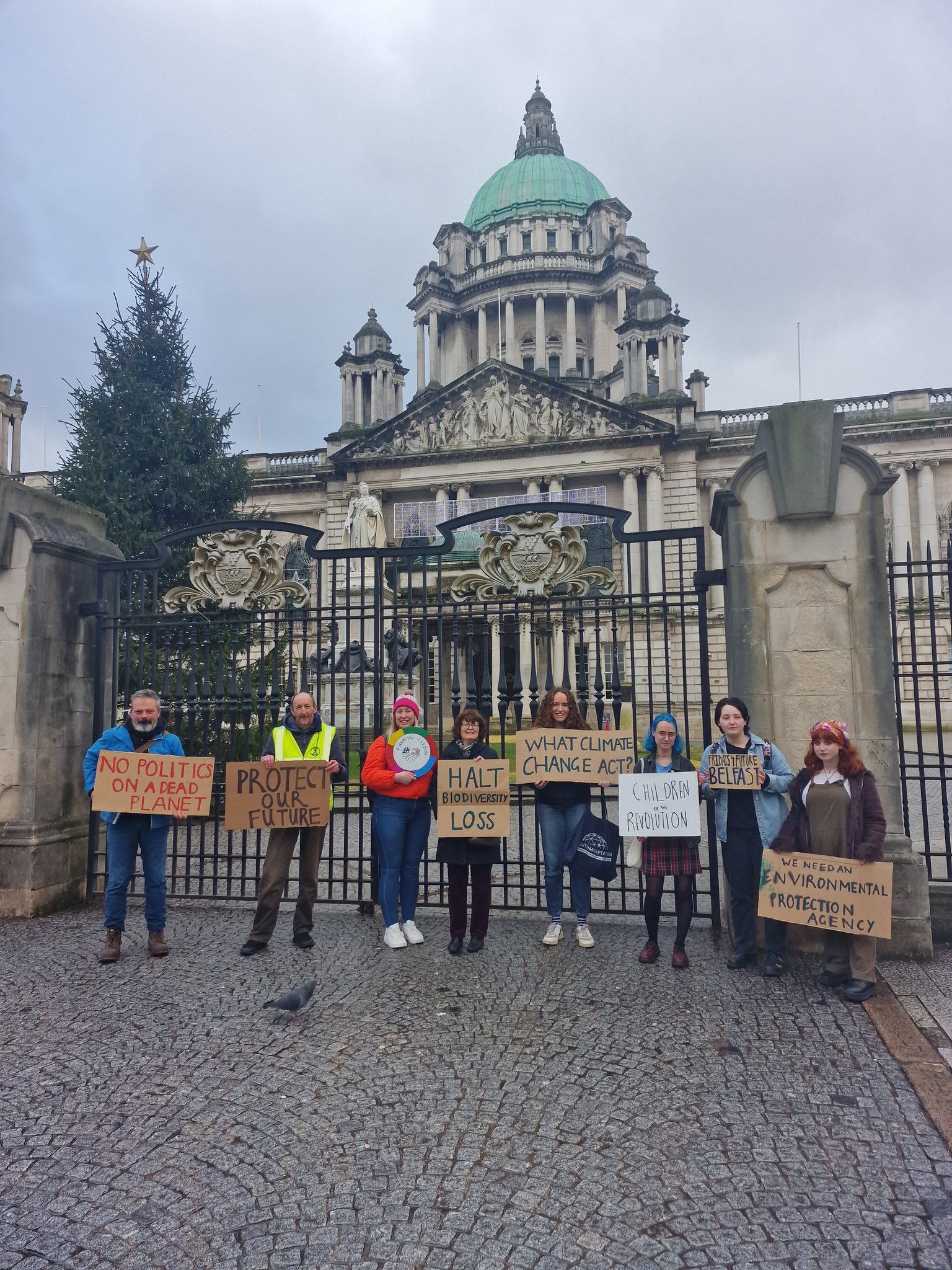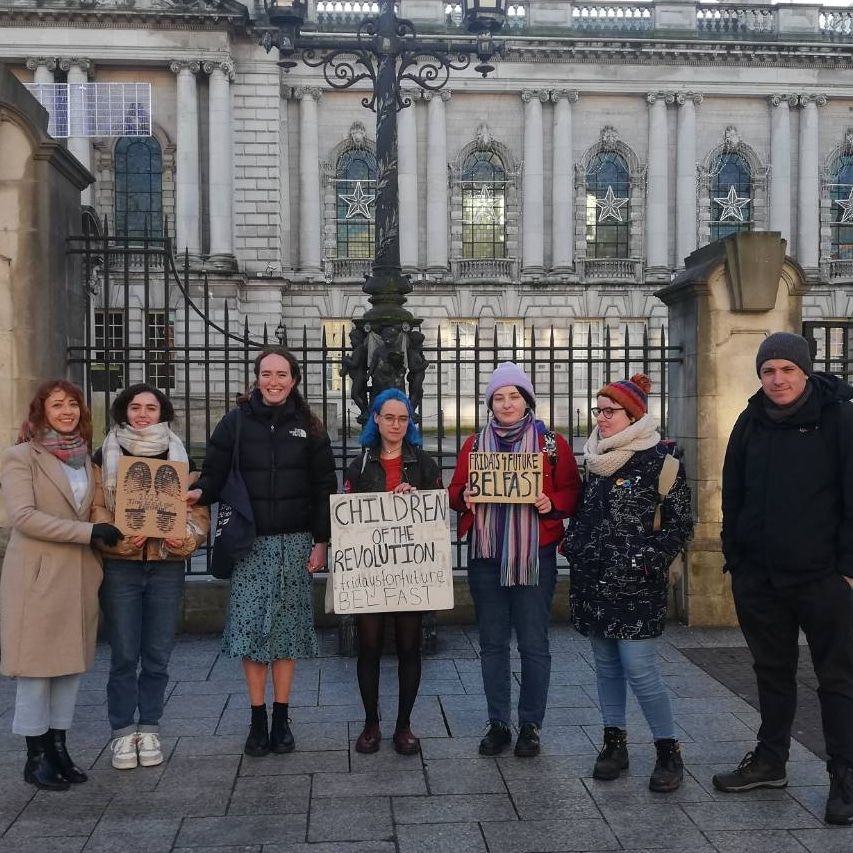A SEVEN-DAY climate strike is taking place this week in Belfast highlighting the need for action on the climate crisis.
The Belfast-based grassroots movement organising the strikes are part of the wider international movement, Fridays for Future.
“We have decided to try and get Fridays for Future more in motion in Northern Ireland,” said member Anna Kernahan.
“We got thousands for our first global strike but it’s only really on the big dates. It’s very difficult to get people striking consistently weekly and that's partly to do with not having a government for so many of those dates that people were asking what’s the point, you can’t change anything because there’s no one in power listening to you.
“The reason that we are trying to kick-start Fridays for Future this year is because it’s on every single continent. There are really big things happening and yet to come and Northern Ireland should be a part of that.”
The strikes will continue until Sunday with a larger demonstration taking place on Friday for the Fridays for Future event. Ulster Wildlife and Extinction Rebellion have both joined the strike in solidarity.
Anna highlighted the need for action from politicians who declared a Climate Emergency and passed the Climate Change Act in June last year.
Fridays for Future were at City Hall on Wednesday
“We’re doing this seven-day protest as a way to start the new year the way we want to go on as a way to show that even if Stormont isn't doing much at the minute the people aren’t going to let them get away with that.
“They have declared a Climate Emergency and have declared a Climate Act but they’re yet to show any action towards that Climate Act that they agreed to. We’re making 2023 the year that they are going to agree to it.”
The act includes a target for net-zero emissions by 2050 in addition to a range or targets for 2030 and 2040 for reducing greenhouse gas emissions in the North. The act also agrees to the appointment of a climate change commissioner.
“It’s completely intersectional – every single social justice issue can be linked to the climate crisis from gender issues, race issues, poverty,” Anna added.
Kicking off 2023 with 7 days of #climatestrikes outside #belfast City Hall.
— Rosalind Skillen (@rosalindskillen) January 2, 2023
Demanding bold climate action & implementation of the Climate Change Act!
We need more people doing environmentalism imperfectly in 2023 — so get in touch & come down (even if it’s your first time!) pic.twitter.com/4YAEK61cWK
“The cost of living crisis will only get worse and worse with the climate crisis. One-in-24 people in Belfast die every year from air pollution. Our NHS is already under so much pressure and that number is increasing every year. There are risks of asthma – York Road was voted the second most polluted road in the UK and it’s in Belfast. That says a lot for having such a small population. If you go to the government websites, you can see the flood risk zones.”
The climate protests will be taking place until Sunday at 12pm at Belfast City Hall.







